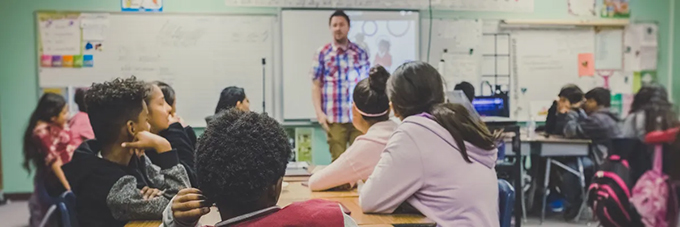
Sexuality is an inherent dimension of the human being. He accompanies him from his conception to the end of his days. For this reason, sex education is a fundamental need that not only has to be a family matter, but must also be approached from schools.
Typically, education focuses on the more biological aspect of sexuality: genitalia and intercourse. Attention is directed towards the prevention of risks (essentially, sexually transmitted infections and unwanted pregnancies).
However, in the words of the World Health Organization (WHO), sexuality is a central aspect of the person that encompasses much more: sex, gender identities and roles, eroticism, pleasure, intimacy, reproduction and sexual orientation.
Part of our human identity
Sexuality is lived and expressed through thoughts, fantasies, desires, beliefs, attitudes, values, behaviors, practices, roles and interpersonal relationships.
Talking about sexuality is talking about what we are, how we are, what we feel, how we feel, how we live, how we express ourselves as sexual people or how we relate to each other.
Therefore, it is an education that must be carried out throughout all the vital stages, and not only from adolescence, since living it in a healthy way helps the subject to fully realize himself and create affective bonds that help him grow with safety and trust.
In addition, as the WHO points out, affective-sexual education is a right of children and adolescents.
Where we come from?
Early childhood is characterized by its desire to know, and this includes its interest in knowing, for example, where boys and girls come from, how we are born, how our bodies change or the exploration of our genitals.
By offering information adapted to their cognitive capacity and maturity, in addition to responding to these concerns, we are forging a bond of trust, transmitting the message that we will always be there to answer your questions.
What we say, and what we do
It is possible that many of us remember, for example, what happened in our homes when a sex scene appeared on television. In many homes, the channel was changed immediately. In others there was an awkward silence. In others, perhaps, jokes were made.
It is important to be aware that we transmit not only with what we say, but also with our silences, with the models we offer, and with the values and attitudes that we show.
Avoiding topics related to sexuality, either because of discomfort, shyness or not knowing what to answer, is also a way of communicating a message.
Even without realizing it, any adult who interacts with a girl or boy is educating affectivity and sexuality : we do it with the words we use or those we do not pronounce, the gestures or the signs of affection that we give or do not show, and the way we do it.
A voluntary request
Currently, it is the educational centers, or rather family associations, that voluntarily request workshops on sexuality from external institutions. This does not happen in all centers, nor at all levels, and rather it occurs in a timely manner once or twice a year, without continuity.
In some Spanish autonomous communities, in addition, the permission of parents or legal guardians is required for minors to receive such training, something that does not happen when workshops are held on other issues such as road safety education or the responsible use of new technologies. , for instance.
There are some isolated projects that are applied in all educational stages, but it is far from common.
Talking is not cheering
One of the erroneous beliefs that make it difficult to implement programs of this type is that talking about sexuality is encouraging people to have more experiences.
However, the curiosity of children does not cease to exist if they do not obtain answers in the family or school environment. In those cases, the answers are sought outside. Probably on the internet, where there is a huge amount of unfiltered information, or among your peers.
Unfiltered porn
Some recent studies suggest that access to pornography begins at 8 years of age . Access to this sexual content reinforces inequality , can normalize violence against women and makes the use of contraceptive methods invisible.
All of this can have a direct impact on their attitude and experience of sexuality, if we take into account that in the Save The Children study (2020) 52.1% of those who frequently view pornography confirm that their viewing has influenced them. much or enough in their relationships .
Self-awareness and naturalness
It is essential to recognize boys and girls as sexual beings and offer them sexual education at all stages of life that allows them to promote their self-knowledge, respect for sexual diversity, a pleasant and positive experience that is respectful of their body and that of others. , as well as providing them with tools so that they can protect themselves from the risks associated with sexuality, such as abuse, aggression, sexually transmitted infections…
For this reason, we cannot understand sexual education from an exclusively biological point of view, but rather it must be approached from a personal, relational and social approach that implies educating in equality.
It is about overcoming the risk prevention approach to speak from a positive framework, which integrates affections, desires, self-esteem, diversity, respect and the establishment of limits. Sex education helps build a freer, more responsible and inclusive society.
Author Bio: Andrea Gutierrez Garcia is Assistant Professor Doctor. Psychologist specialized in multidisciplinary intervention in gender violence at the University of La Rioja
